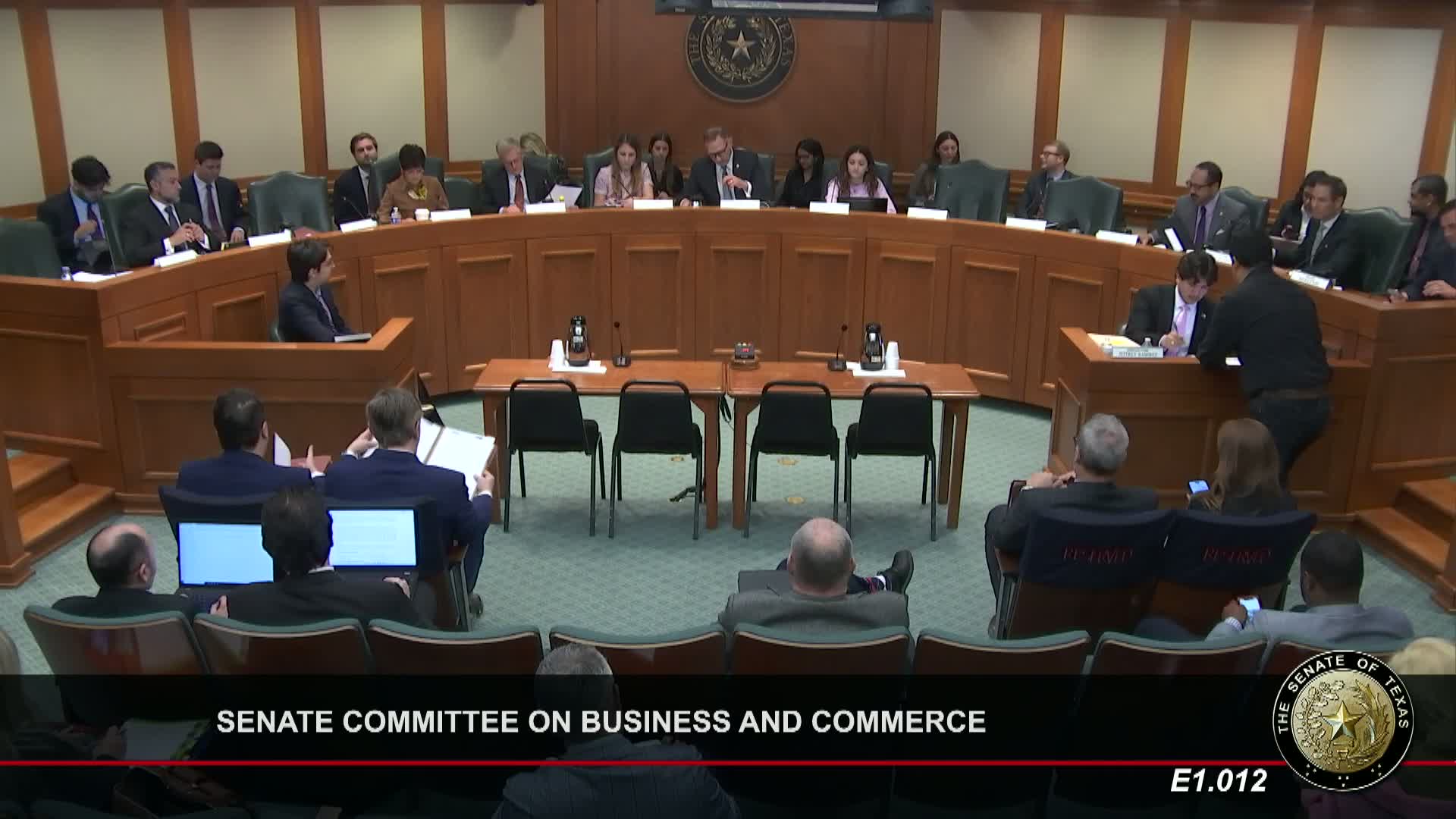Article not found
This article is no longer available. But don't worry—we've gathered other articles that discuss the same topic.
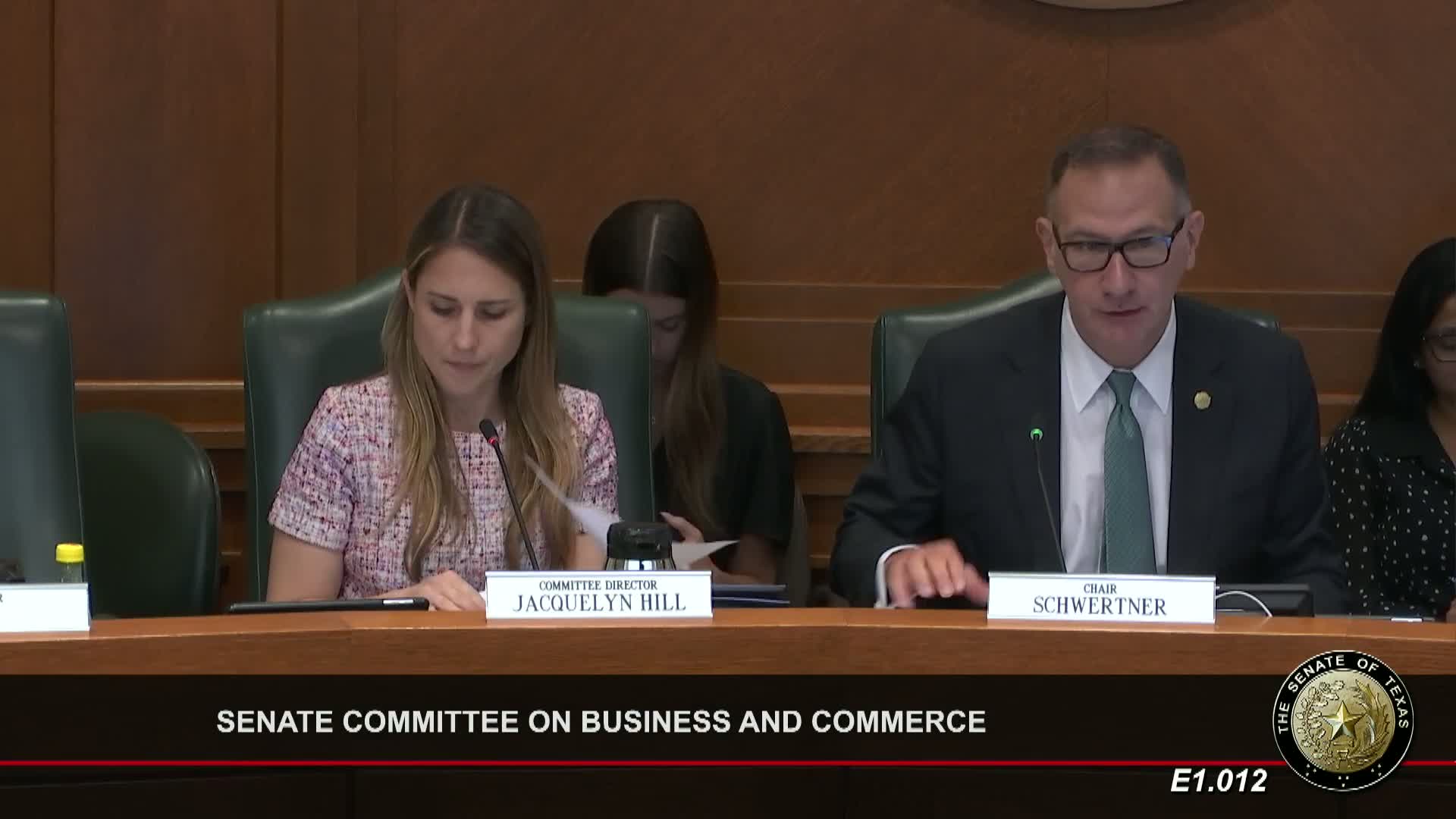
Committee hears mixed testimony on HOA transparency bill; industry and homeowner groups disagree over penalties and enforcement
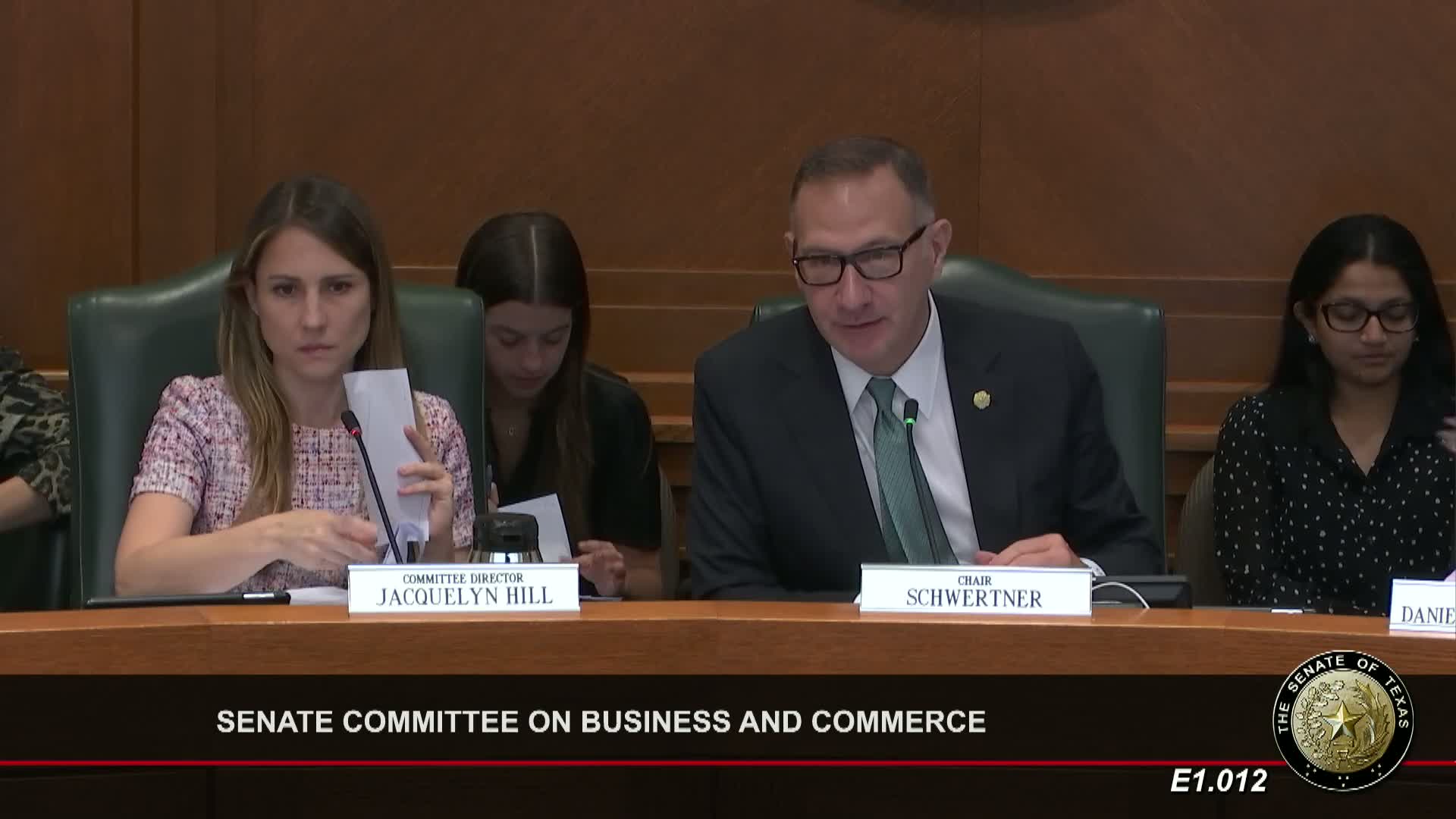
Bill would create expedited administrative remedy for fraudulent UCC filings; industry and lenders discussed safeguards
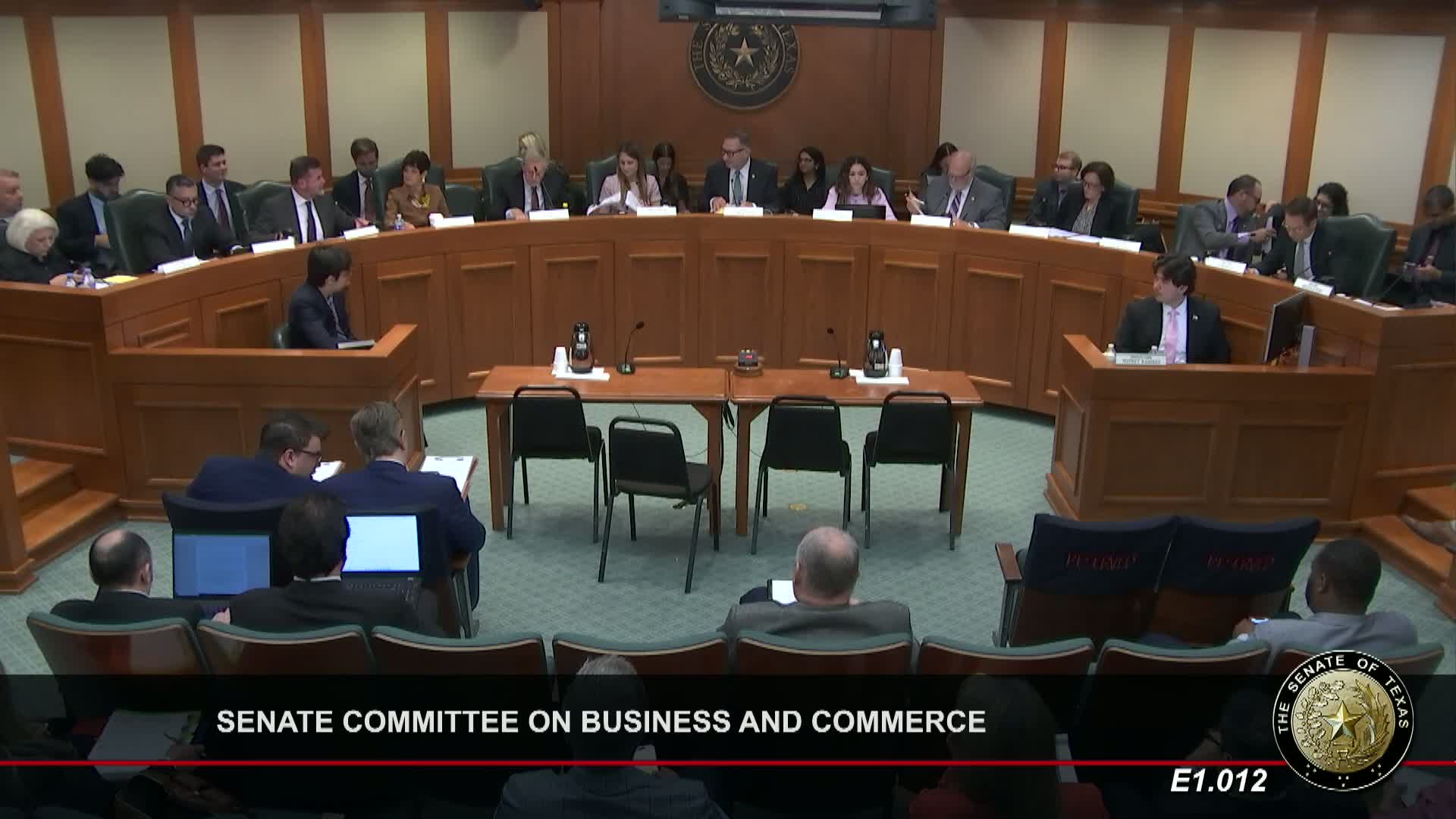
Committee hears contractor testimony on building-integrated photovoltaics bill; sponsor says it clarifies installation requirements
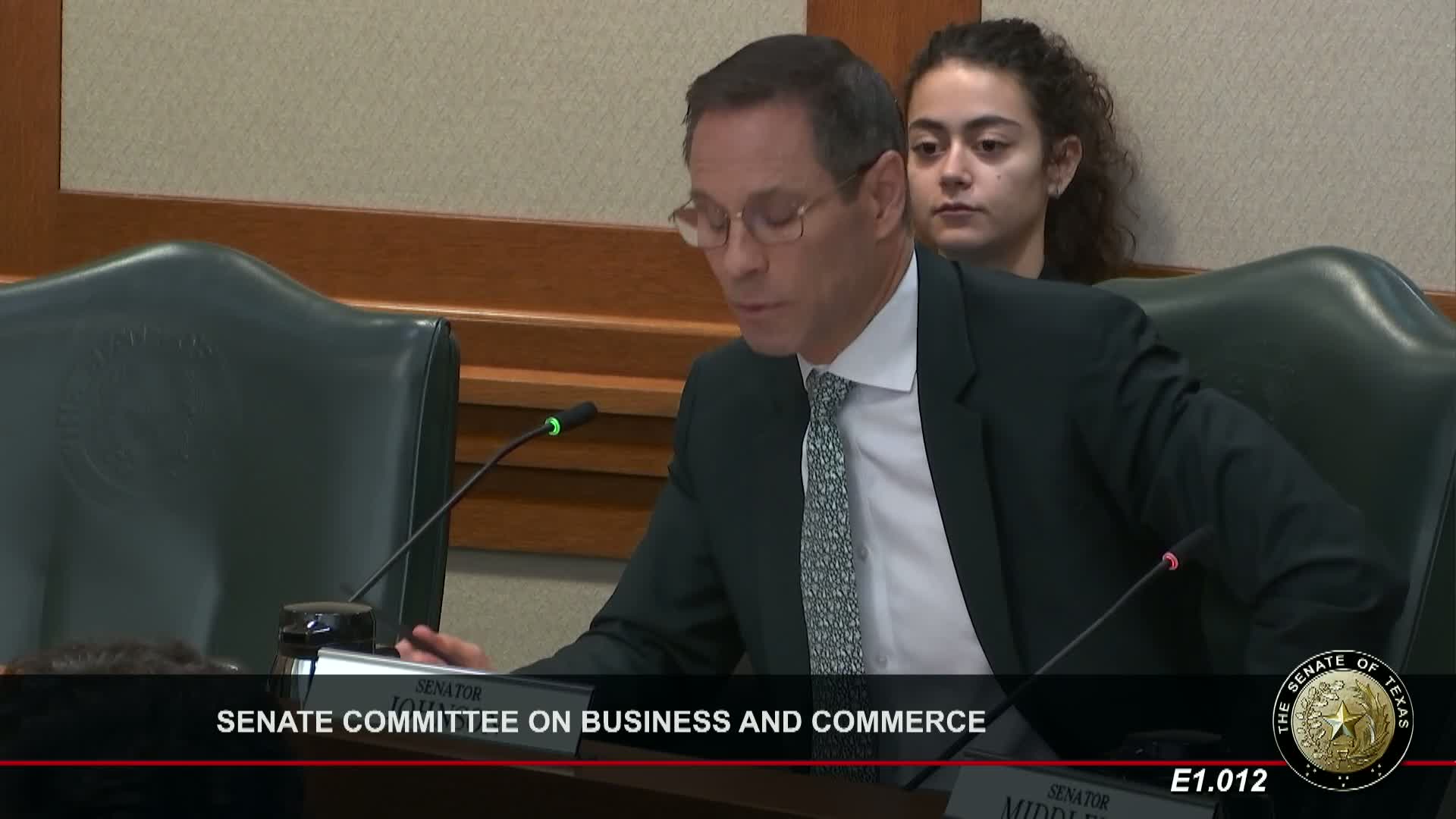
Committee advances a major energy-efficiency update; bill raises utility goals, removes emergency load-management credit
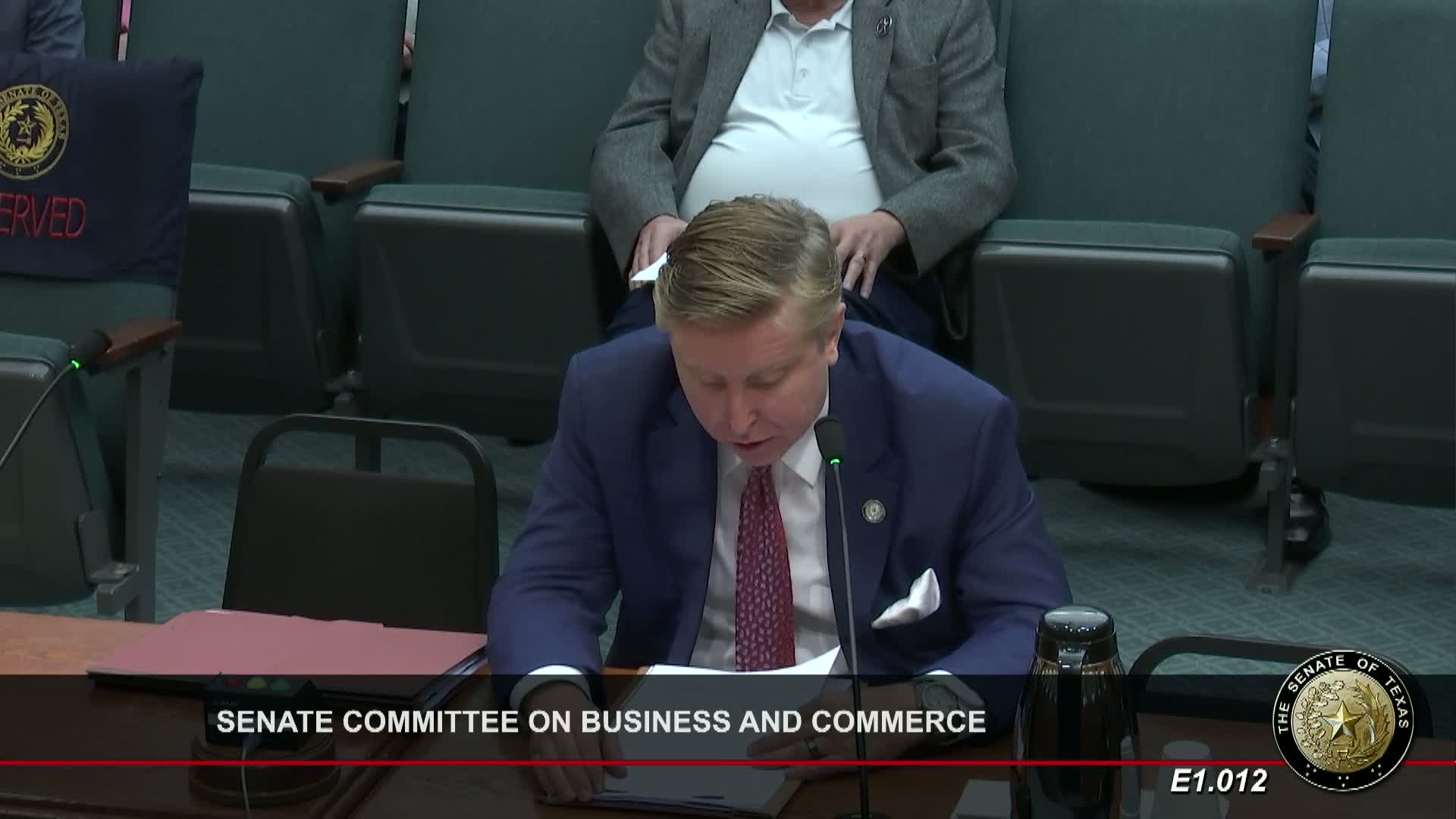
Committee hears extensive testimony on regulating cryptocurrency kiosks; substitute would license operators, require holds and ID checks
